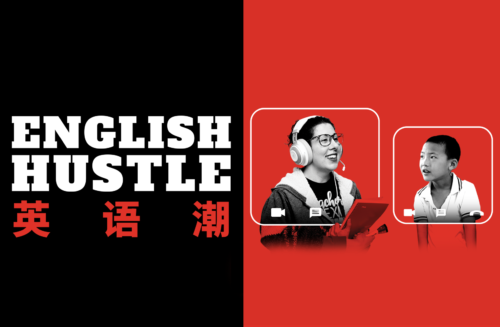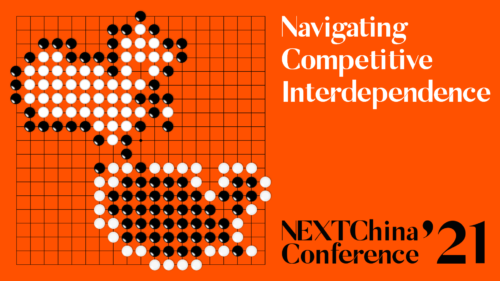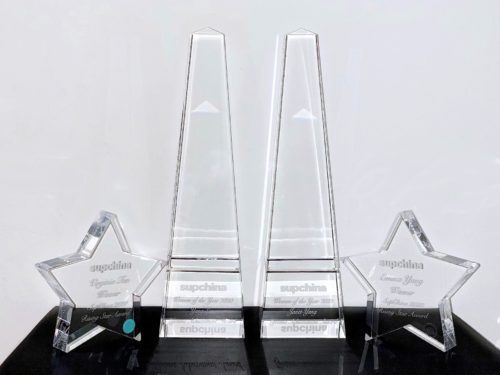From Superpower Couples Therapy to Yangyang at the mic: What happened at the NEXT China 2019 conference
SupChina’s NEXT China conference was held in New York City on November 21, 2019. The conference was all about the future of China, and why it matters for you. Over 200 professionals and China-watchers gathered to make connections and hear from over 30 speakers and breakout session facilitators.

The China Project’s NEXT China conference was held in New York City on November 21, 2019. The conference was all about the future of China, and why it matters for you. Over 200 professionals and China-watchers gathered to make connections and hear from over 30 speakers and breakout session facilitators.
The day began with opening remarks from The China Project’s CEO, Anla Cheng. “Today is all about learning, networking, and making new relationships and tangible connections,” Cheng said. On The China Project’s role as an independent platform that covers “all things China,” she added, “Sometimes we do get accused of being too friendly to China. Sometimes we get accused of being too antagonistic to China. Either a panda hugger or a dragon slayer. Just for the record, we are neither. We shed light, not heat.”
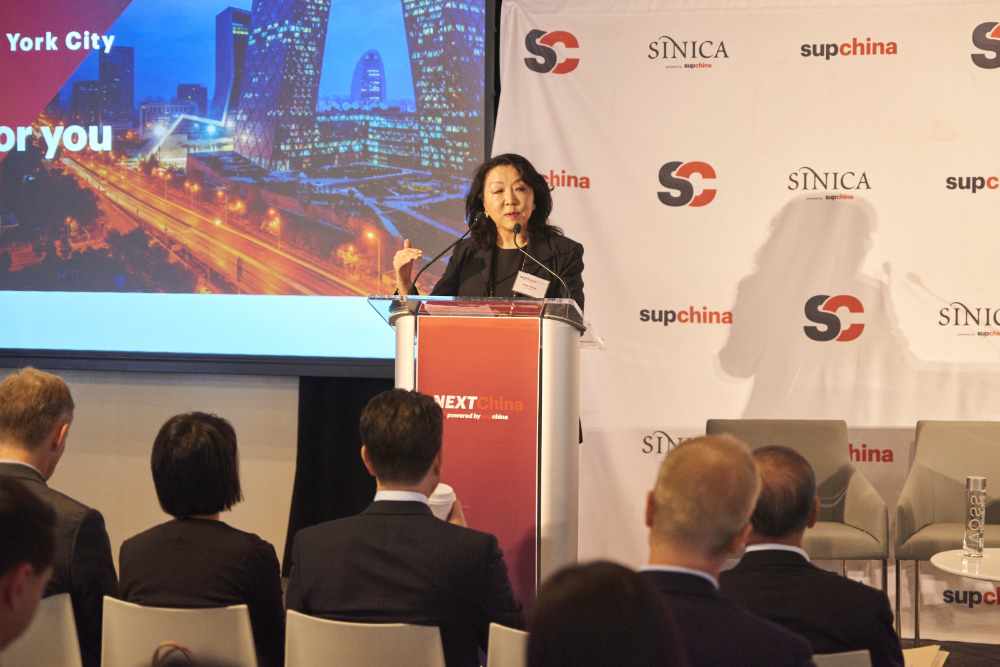
Our opening keynote speaker was the renowned medical researcher David Ho, who pioneered treatment for HIV/AIDS. Dr. Ho gave a talk on the anxiety among Chinese and Chinese-American scientists as the U.S. government has suddenly ramped up scrutiny of funding and other activities, especially over the past year.
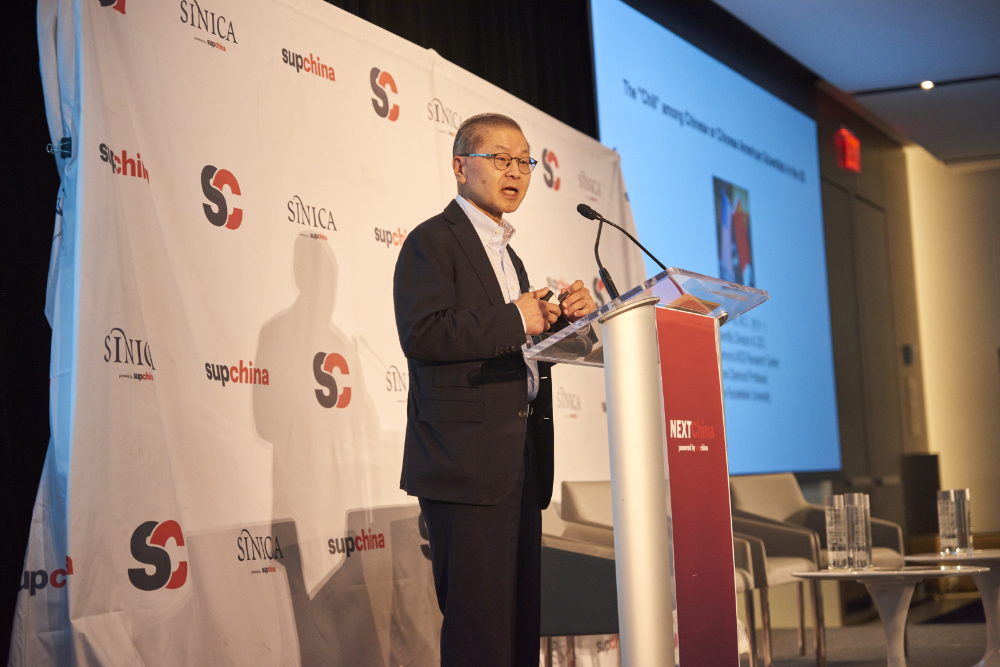
A few of the takeaways from Dr. Ho’s excellent presentation included:
“I don’t think anyone knows for sure” if the scrutiny of Chinese scientists is about national security or a Red Scare, but the Chinese scientist community certainly sees it as racial profiling, says Dr. David Ho #NextChina2019
— The China Project (@thechinaproj) November 21, 2019
There are “real bad actors committing real crimes,” but there are also “real cases of government overreach” in prosecution of Chinese scientists in America —Dr. David Ho #NextChina2019
— The China Project (@thechinaproj) November 21, 2019
“If you look at the situation, it’s not limited to Chinese scientists. All scientists loathe bureaucracy, loathe filling out forms.” -Dr. David Ho, on cases of sloppily reported grant money and other violations that are suddenly heavily policed #NextChina2019
— The China Project (@thechinaproj) November 21, 2019
Next, it was “Superpower Couples Therapy” time, with Christopher Marquis of Cornell University moderating an illustrious panel on the future of U.S.-China relations: Catherine Eng, a policy analyst at Google Jigsaw; Dave Rank, the former number two official at the U.S. embassy in Beijing; Cheng Li, the China lead at the Brookings Institution; and Roberta Lipson, the CEO of Chindex International and the chairman of the board of United Family Hospitals.
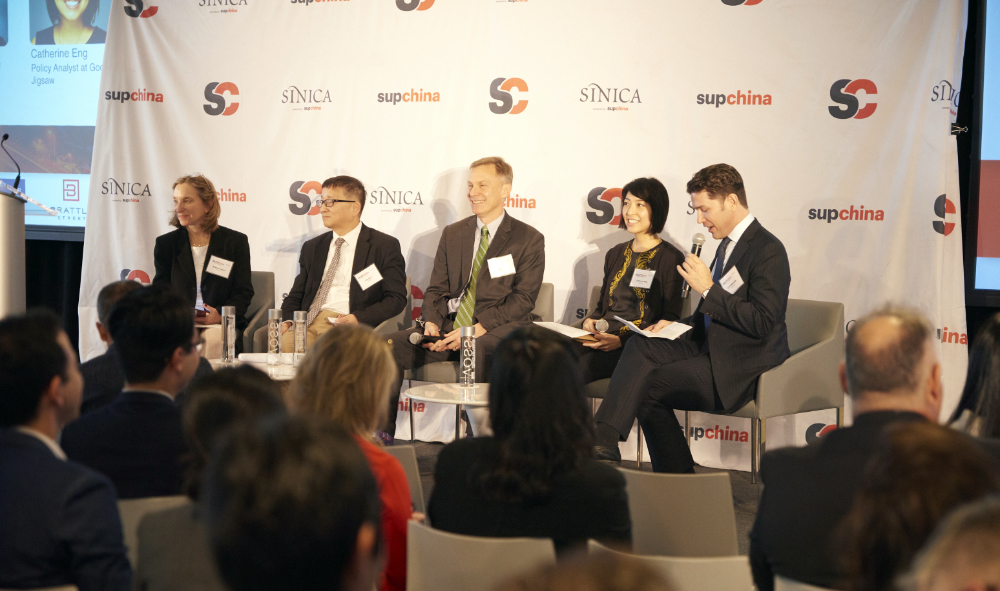
“It’s a very sad thing – I started my career bringing US products to China. Where our company is now suffering from the impact of US tariffs, we’ve switched to European substitutes,” says Roberta Lipson, board chairman of @UnitedFamHealth #NextChina2019 #healthcare #tradewar pic.twitter.com/88wzlK1K9S
— Josephine Lau (@byjlau) November 21, 2019
Dave Rank, former charge d’affaires at US Embassy, notes the wide range of genuine cooperation between US and China by mid-2010s: global health, Iran, NK etc. Much at risk now in downturn.
— Kaiser Kuo (@KaiserKuo) November 21, 2019
The NEXT China conference attendees then split into six exclusive breakout sessions focused on key industries and themes for the future of business in China:
- U.S.-China Environmental Collaboration
- Life Science and Healthcare in China
- Digital Marketing in China – A Parallel Universe
- Ever-Changing Supply Chains in China
- Legal Services in China
- Corporate Philanthropy in China
We are deeply grateful for our breakout session sponsors for making these presentations possible: King & Wood Mallesons, Deloitte, PingPong Digital, the California-China Climate Initiative, Dragon Innovation, and the Serica Initiative.
Also, a special thank-you to our overall conference sponsors, Greenwood’s Asset Management, Brattle Street Coaching, Pillsbury, Piedmont Bank, WeBranding, Palm Drive Capital, and Orbia.
After the breakout sessions, the main session of the conference reconvened in the afternoon, and Mark Roswell, China’s favorite Canadian entertainer, gave remarks to the audience via video:
.@akadashan appears in a video for the #NextChina2019 audience here in NYC, talking about his career in the evolving entertainment industry in China! pic.twitter.com/2AD7rFKC2x
— The China Project (@thechinaproj) November 21, 2019
Fan Dai, the executive director of the California-China Climate Institute, then gave a talk on opportunities for U.S.-China cooperation on climate change:
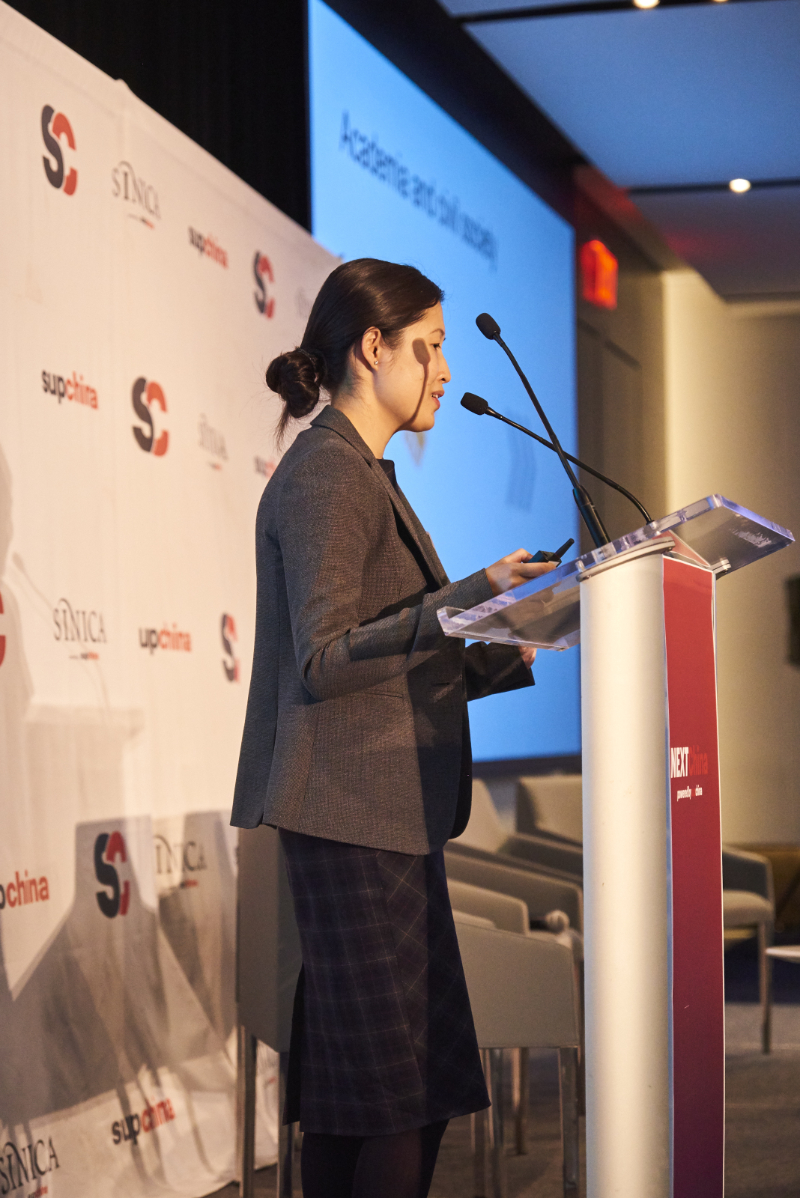
Our afternoon panel, on the new technologies of governments, took on the issue of China’s development and application of advanced technologies like AI-powered surveillance and the changes that this has caused in relations with the U.S. and others. Adam Segal, a senior fellow at the Council on Foreign Relations, moderated the discussion featuring: Seamon Chan, the co-founder and managing director at Palm Drive Capital; Naomi Wilson, the senior director of policy, Asia, at the Information Technology Industry Council; James Millward, a professor of inter-societal history at Georgetown University; and Anne Stevenson-Yang, the co-founder and research director at JCAP.
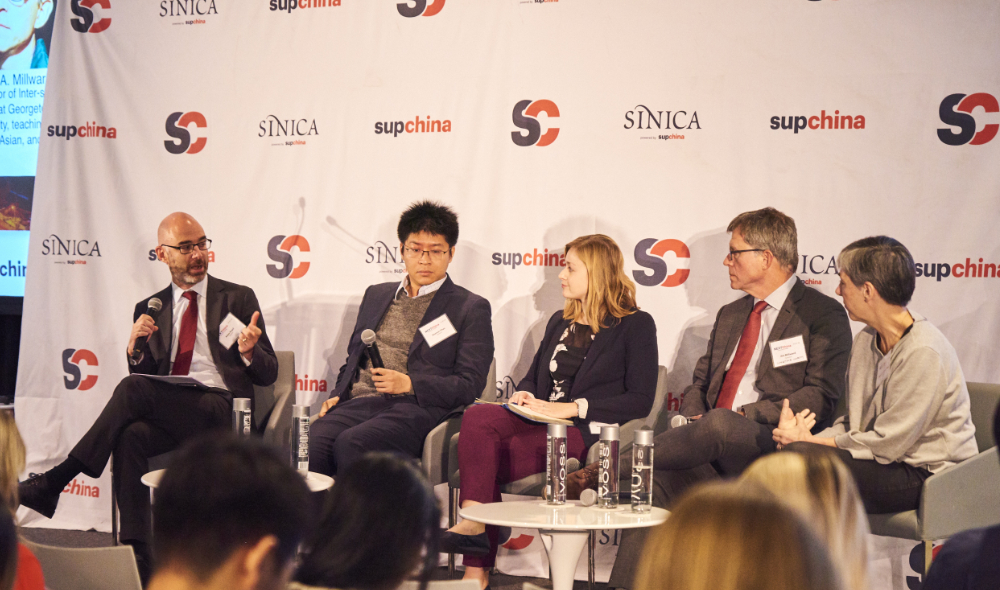
“I find that what tends to drive innovation in China is regulatory avoidance,” quips Anne Stevenson-Yang at our panel on The Technolgy of Government.
— Kaiser Kuo (@KaiserKuo) November 21, 2019
“The Chinese government is not a monolith. They can’t mandate that Chinese companies meet these prescriptive standards or attain success in certain areas. Competition drives that.” -Naomi Wilson #NextChina2019
— The China Project (@thechinaproj) November 21, 2019
“The technology side of governance in Xinjiang was done through public-private partnerships…This is, in a way, more frightening because it injects competition into what’s happening in Xinjiang. Xinjiang isn’t just a laboratory, it’s an incubator.” – @JimMillward #NextChina2019
— The China Project (@thechinaproj) November 21, 2019
https://twitter.com/ZhaoyinFeng/status/1197610314415706112
The China Project’s COO, Bob Guterma, then sat down with playwright David Henry Hwang to discuss his recent show, Soft Power, which explores Chinese and American identity and political perception.
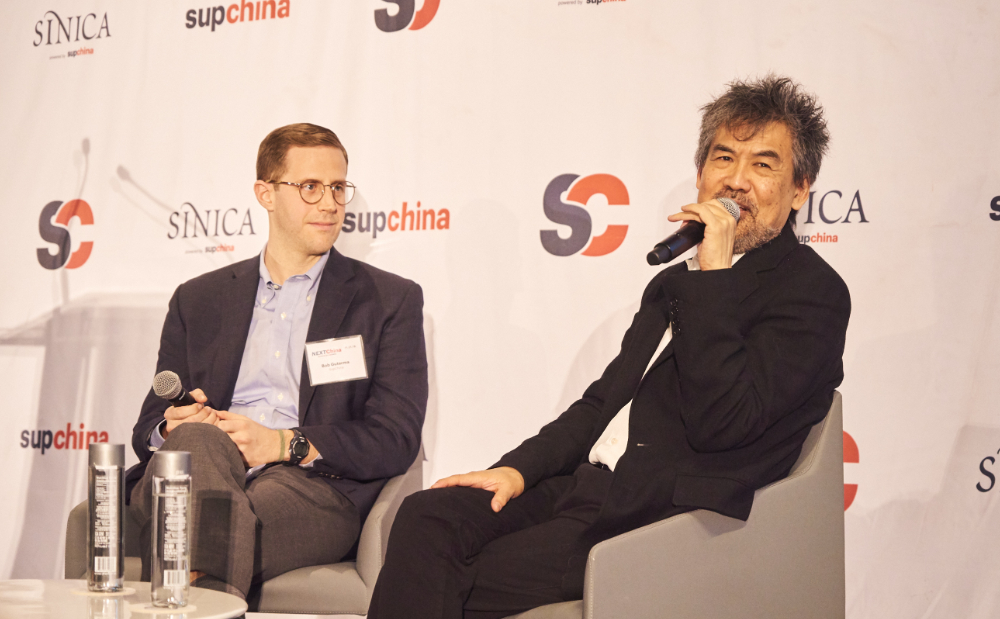
"I thought there was something important about a whole stage of Asian-American faces singing about democracy, as they live in a country where their foreign-ness is always discussed and their belonging debated." —@davidhenryhwang #NextChina2019
— The China Project (@thechinaproj) November 21, 2019
Finally, Jeremy Goldkorn and Kaiser Kuo hosted a live Sinica Podcast featuring Yangyang Cheng, the particle physicist and essayist whose writing we feature on The China Project.
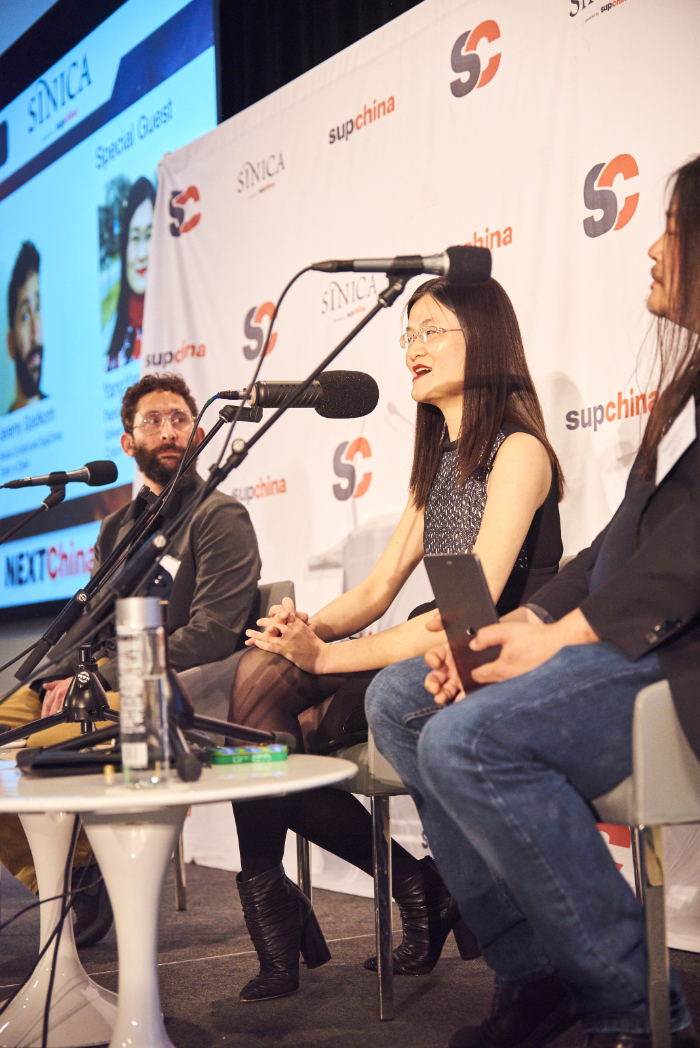
A tweet from an attendee, Mike Miller, sums up the experience of witnessing Yangyang at the mic:
https://twitter.com/mlmillerphd/status/1197633797023555585
Thank you to all our amazing speakers, attendees, and sponsors for coming together for a day of learning and connecting about the future of China!

